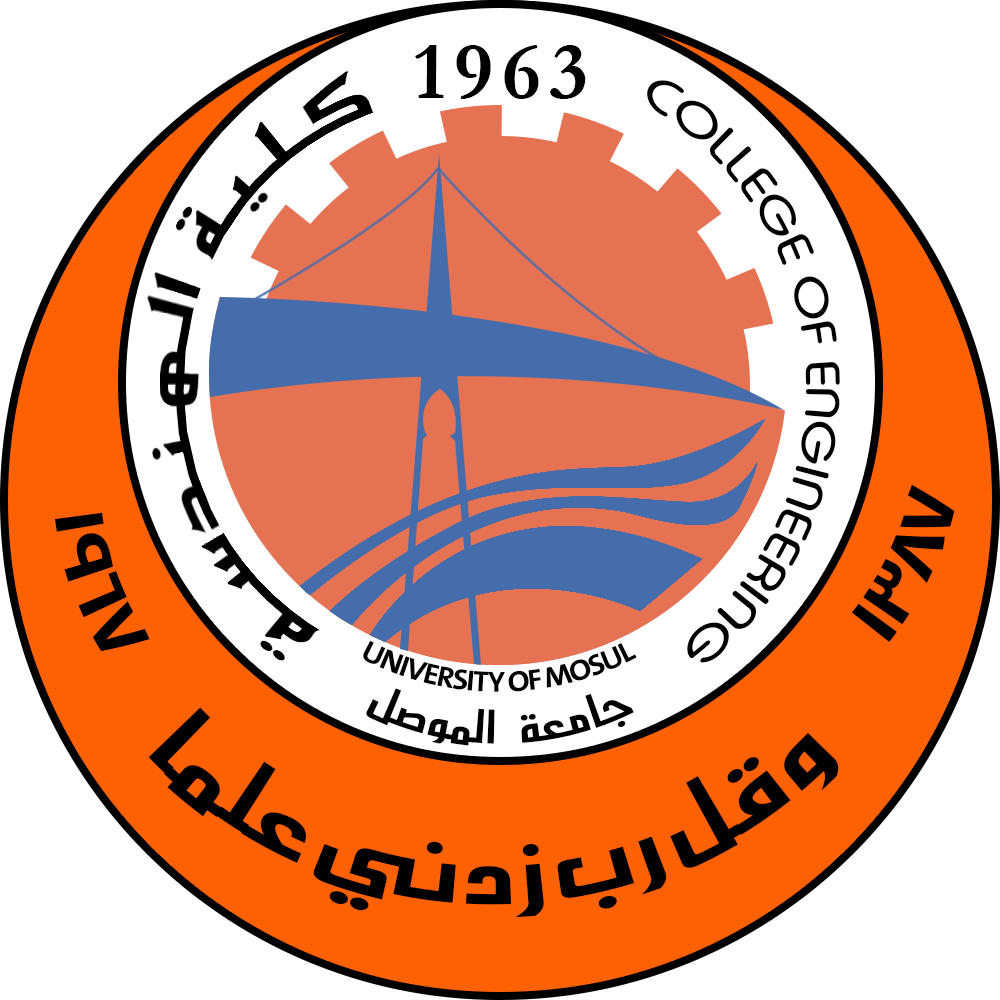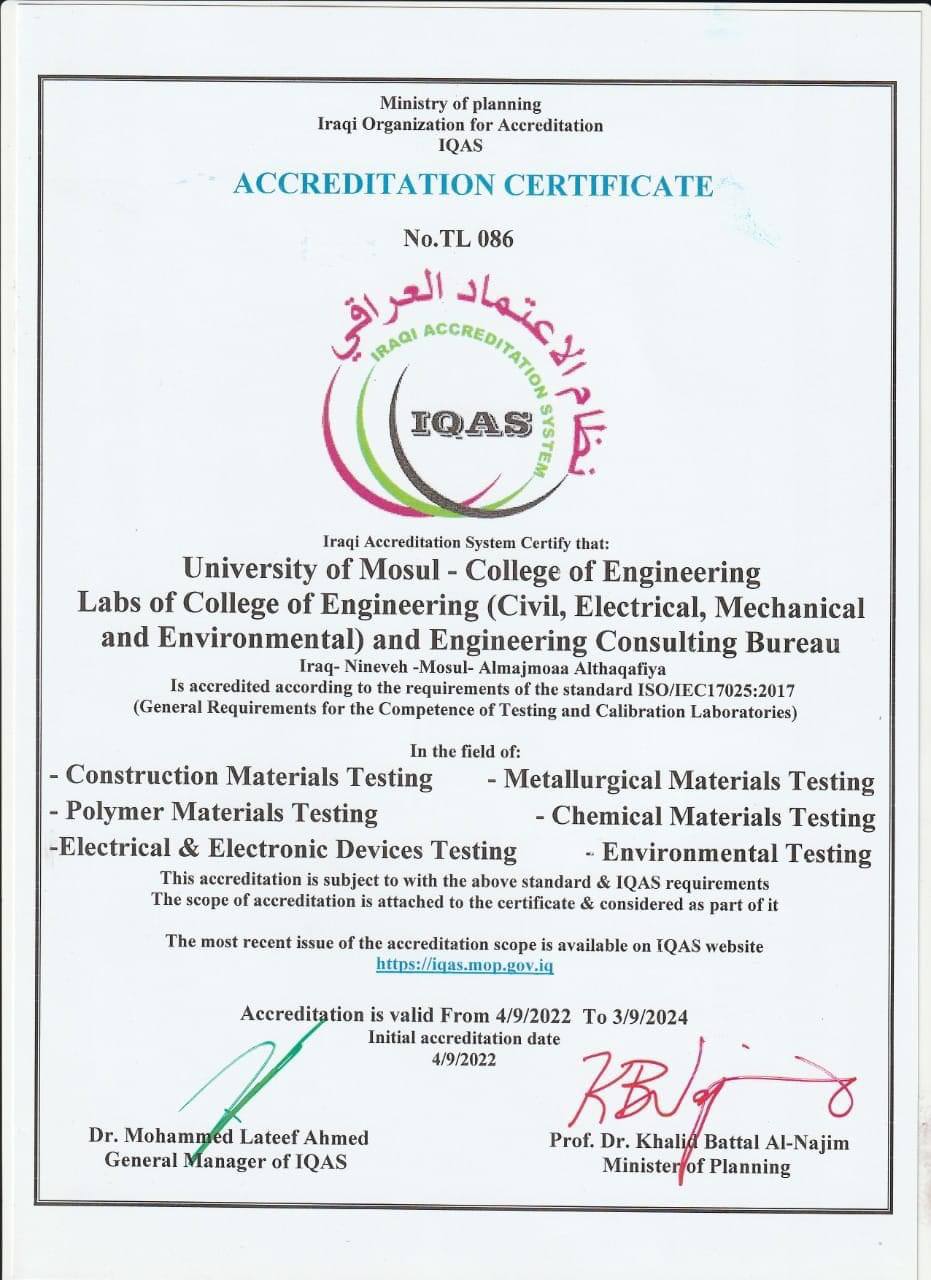Overview of Department – Department of Dams and Water Resources Engineering
Dams and Water Resources Engineering Department is one of the oldest scientific departments of the College of Engineering at the University of Mosul, as its foundation back to the year 1967. The study in the department includes well-studied syllabus and spread over four years, ensuring the graduates information qualifies them to work in the public and private sectors as a successful engineers. The number of the department’s lecturers is currently (30), distributed among (8) PhD holders and the rest of the master’s degree. The department awards a Bachelor of Science degree in Dams and Water Resources Engineering. In the academic year 1977-1976, the study of higher diploma was opened as an initial stage for the study of master’s degree, and this continued until the academic year 1981-1982, when a master’s degree was introduced, and a doctoral study was opened in 1992-1993. The higher diploma study was reopened in the year 2010-2011 for the purpose of developing the skill of engineers in the public and private sectors, especially for those who were unsuccessful in obtaining high rates that qualify them to study masters. A special curriculum has been designed to equip them with the latest scientific developments. The higher diploma student must engage in a specialized study subject under the supervision of one of the department’s teaching staff with advanced degrees. Both the master’s and doctoral studies include the specializations of hydraulic, hydrological and irrigation, with a two-year master’s degree the first year is preparatory and the second year is for research. As for the study of a PhD, it requires three years; a year of preparation and two years of research, after which the graduate is awarded a PhD of Philosophy in Dams and Water Resources Engineering. The teaching system adopts the principle of annual and courses lessons, and the academic subjects are characterized by their theoretical nature, supported by the practical applied aspect that is implemented in the department’s laboratories such as hydraulic, soil and space physics laboratory and computer lab in addition to the materials and soil mechanics labs in the civil engineering department and engineering geology laboratory in the Earth science department. The department’s lecturers seek to keep up with development and modernization by following the latest published research and books composed in the field of dams and water resources engineering or through participating in scientific conferences and seminars held inside and outside the country and to generalize the concepts of rationalizing consumption in the fields of irrigation by using modern techniques such as sprinkler and drip irrigation. Also, the department, through official channels, communicates with Arab and international universities or international organizations with jurisdiction to conclude scientific agreements with them or obtain training courses for professors and graduate students. The department’s lecturers participate in the advisory and research teams formed by the engineering consulting office in the college. The Department of Dams and Water Resources Engineering has a distinct role in building good and solid relationships with the rest of the university’s colleges and their scientific centers with close competencies in conducting joint research or joint supervision of master’s and doctoral theses or participating in continuing education courses. Many of its employees participates in the committees and government bodies that provide services to the community, such as the engineers syndicate and the establishment of continuing education courses for engineering staff in the state departments to inform them of the new technologies that are used in planning and managing water resources optimally and sustainably.

